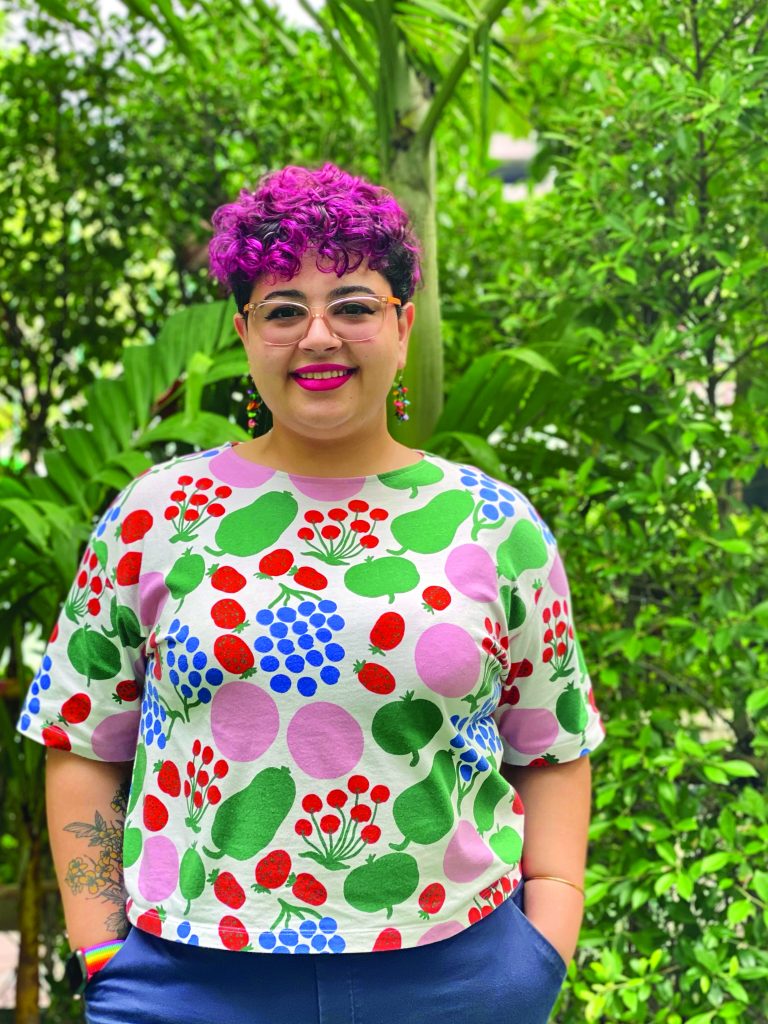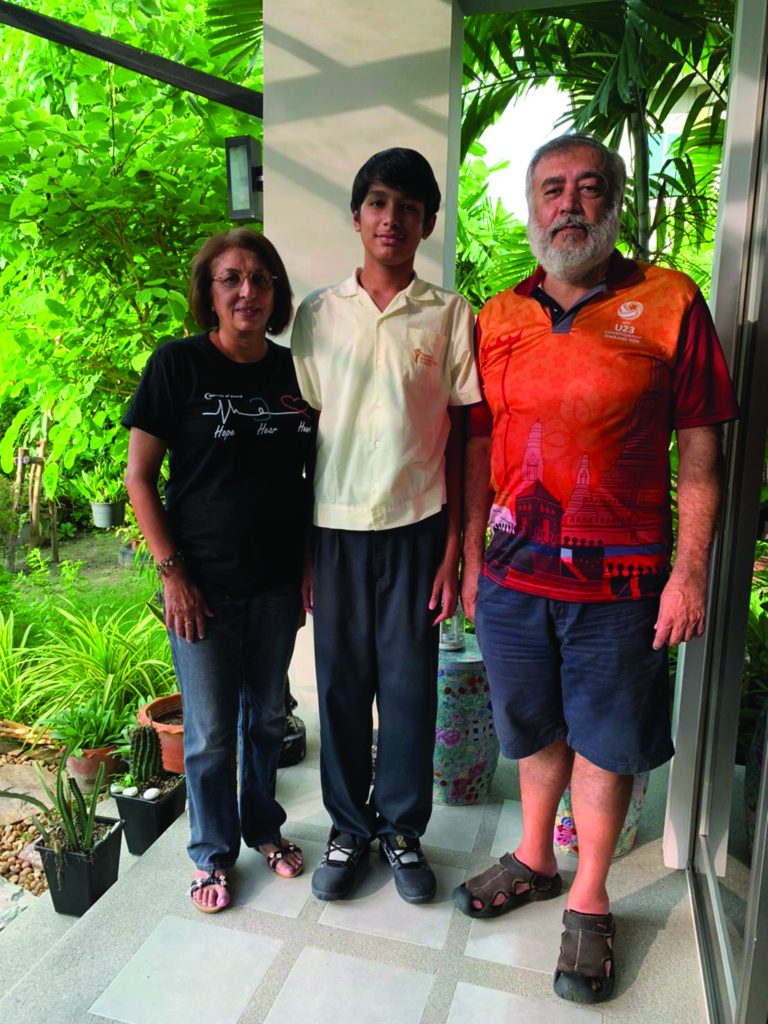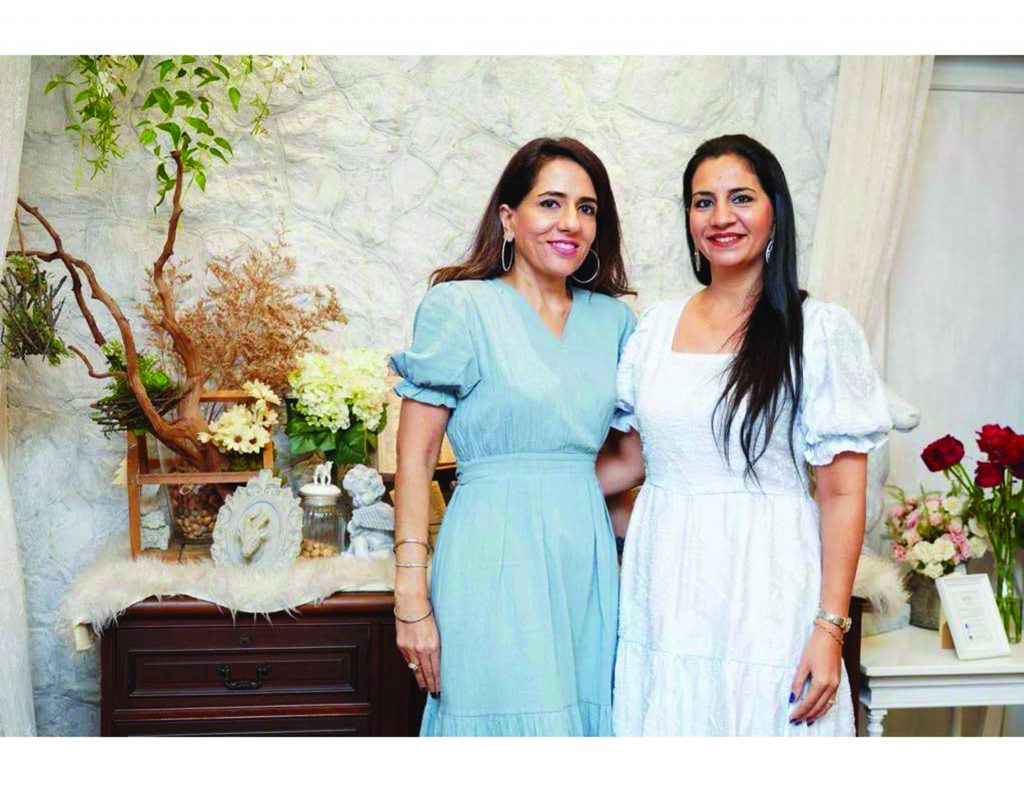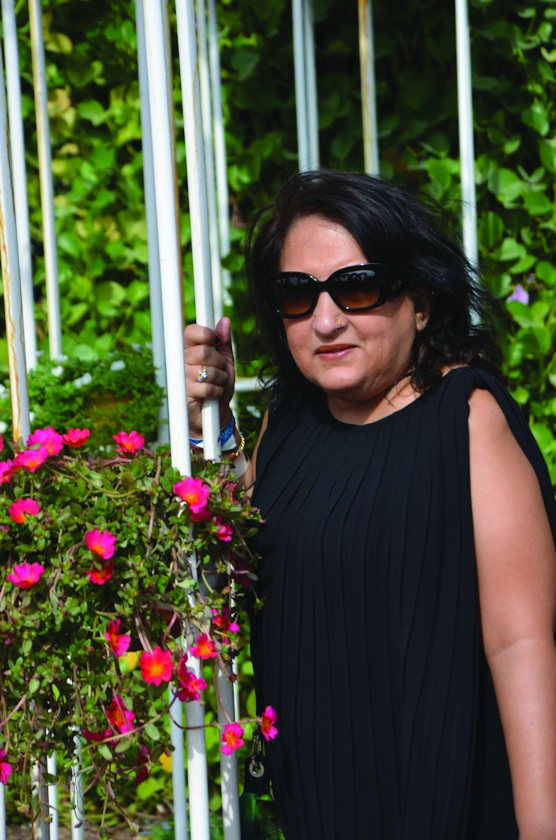Hear them roar.
By Nimarta Narang
This piece is dedicated to Camarin Sachdev, who passed away on the 26th of October, shortly after this article was published. Brave till the end, she was the epitome of someone who forged her own path in life and touched everyone around her with her resilience, kindness, and strength.
Throughout the last few months of lockdown, we’ve seen multiple South Asian women, in both pop culture and real life, emerge and leave an impression. We had Aparna Shewakramani’s strong-willed personality on Netflix’s Indian Matchmaking, Gunjan Saxena’s fearless determination in Gunjan Saxena: The Kargil Girl (2020), and Kamala Harris breaking down barriers as the first Black and Tamil-American woman to be on the U.S. vice-presidential ticket. What 2020 and these remarkable individuals have taught me is that there is always hope even in bleak times. Each of these women have had to fight against rigid systems and archaic societal expectations. Yet, they kept trying.
I truly believe there has been a shift in the way we regard gender and gender roles, and I see this transformation strongly in the Thai-Indian community, with immense growth in the way we view careers, family, health, and personal identity. In fact, I was incredibly lucky to connect with four such individuals who are pioneers of this type of change. We may not know how the world is going to look in the next couple of months but with women like these in our midst, I know our community will be just fine.
Force of Dash
27-year-old Dash Swani (she/they), an art educator at the Canadian International School of Thailand, went head-to-head against antiquated expectations of gender identity, and continues to do so with her students, whom she encourages to express themselves through art:
“As a non-binary person, growing up as a woman, I defied societal expectations. From a young age, I would explore different interests, such as roller derby, painting, theatre, singing, dancing, badminton, and swimming. I am blessed to have a mum who wanted to me to explore and find out for myself what I wanted to do in my life. She has always been my biggest champion and cheerleader. I wouldn’t be here without her.
“Similarly, I tell my students that they have the power to change the world. Many of them struggle with perfection and fear that they won’t achieve their artistic potential. I remind them that perfection isn’t something they should strive for, growth is. Our pieces of art are a piece of us. Art can be therapeutic; art can be social commentary; art is supposed to be fun; and most importantly, art is what you make it to be!”
Prior to her career as an educator, Dash worked at an architecture firm in India from 2017 to 2019 where she had an experience that would prove to be a marker of her ability to stay true to herself. One day, the head of the HR department came to the studio space to share the Code of Conduct with the team. The head, who was a woman, went on to explain how the clients and vendors were objectifying the women working at the office and calling them, “hot, hot, hot.” She said that as a consequence, the women needed to cover up – they couldn’t wear “short-short sleeves, sleeveless tops, spaghetti straps, no dresses should be above the knee, no deep necks, and no clothing showing backs.”
Dash recalls, “I had flashbacks of being a middle schooler when I was firmly asked to go home on my birthday to change my outfit because it was ‘too fitted and sleeveless.’ I thought in my head; times had changed. But we’ve learned time and time again that they haven’t. I then interrupted her and asked, ‘do you think it is appropriate for you to police women at work?’”
In that moment, Dash was able to champion herself with the HR department head, a pivotal moment that she credits to her mother’s unswerving encouragement throughout her childhood. “That day,” she says, “I stood up for the 14-year-old me who went home crying on her birthday only to return to school in the uniform to prove a point.”
Mother Knows Best
Sometimes, it takes a mother to tackle institutional discrimination. 56-year-old Indra ‘Renu’ Jokhani stood up for the rights of children with disabilities, many of whom both society and the government has allowed to fall through the cracks.
Indra was elated when she found out she was going to be a mother after having moved to Bangkok, her mother’s hometown. Her son, Shaunak, was born on November 11, 2005. 40 days later, they found out that he had profound hearing loss. “My darling niece Saloni was over and noticed that when our dog Bisho barked, Shaunak did not have a reaction,” Indra recalls. “She immediately picked up on this and the next day I took Shaunak to the doctor and we found out he had hearing loss.”
What was incredible, however, was the response she received from her family and the rest of the community. “My mother-in-law was with me when we found out that Shaunak was deaf, and her first reaction was to say, ‘Don’t worry, this is our beta and we will take care of him.’ My dear friend Kumu said to me, ‘we’ll all learn sign language so we can communicate with Shaunak.’ My sister-in-law, Anita, took the time to take him to healing centres. Finally, Dr. Meera Khorana was the person who steered me towards the right doctors and [pushed] for me to ask the right questions.”
Her experiences spoke to the truth of the saying that it takes a village to raise a child, and that unlike Shaunak, many children with disabilities aren’t fortunate enough to have so much support. After Shaunak’s diagnosis, Indra’s work took a back seat as she worked on ways to make life easier for him, including bringing him to speech therapy at Rajavithi Hospital twice a week. A cochlear implant would cost THB 1 million, so Indra and her husband had to work hard to save up. However, when Shaunak was one year and eight months old, things changed for the better:
“His Late Majesty King Bhumibol Adulyadej gave a grant to give 50 children at Rajavithi Hospital to receive free cochlear implants. We were at the right place at the right time, and Shaunak was one of the 50 children to receive this grant from the King.” This became the stepping stone for Indra to continue paying it forward to other children who are hearing impaired. She, along with other parents with hearing impaired children, co-founded the Cochlear Implant Community of Thailand (CIC). One thing Indra was insistent on noting is that there are still challenges even after someone is fitted with a cochlear implant. For example, they have to continue attending speech therapy, and for Shaunak, it was difficult to find Auditory Verbal Therapy teachers.
“Shaunak was rejected from five schools because of their unfamiliarity with a cochlear implant. They were scared that he would need special attention and if the implant was lost, it would cost them THB 500,000 to replace it. It was an uphill battle.” But Indra and her family never gave up. “Throughout it all, my husband Anil gave me unwavering support in all the decisions I’ve made, from finding the right treatments for Shaunak, to getting involved in the Association work,” Indra relays. Eventually, Shaunak was admitted to Dararat Nursery, and he now attends Trinity International, which is working to ensure Shaunak’s educational goals are met.
“His classmates are very aware of his implant and there is no discrimination at all. And the icing on the cake is Shaunak is a normal teenager who argues and debates with me. I welcome this with open arms.”
All this wouldn’t have been possible without the community’s support and Indra’s drive to make sure children with hearing impairments weren’t left by the wayside. 12 years after it was founded, the CIC community registered as The Cochlear Implant Association (Thailand) to ensure that they had a stronger voice. “As a community we have been advocating the government to give free implants to all children who want one. We were an important part of getting 13 free implants from them between 2016-2019 as well as getting funds to train auditory verbal therapists, but that’s not enough. In the end, no matter what challenges we face, remember we can accomplish anything we set our minds to.”
The Auntypreneurs
Despite society often relegating stay-at-home mums to housework, 49-year-old Taranjit Narang, along with her sister-in-law, 45-year-old Jasreen Narang, proved them wrong by creating a new business venture in the midst of lockdown.
Having lived together for the past 25 years, Taranjit and Jasreen spent their married years looking after the household of Sardar House, a name their grandfather-in-law had coined when he built the house 30 years ago.
When Bangkok went into lockdown in March, the women saw an opportunity. For years they had been taking Jasreen’s prized recipe, gur giriya, to events and functions, and sharing them as gifts. They had even started distributing it to the friends of their children abroad. “Gur giriya is made of toasted almonds, homemade ghee, and organic gur,” Jasreen explains. “It has a crunchy, nutty texture and works very well as breakfast or an evening snack with tea. When we saw people start selling various goods online, a loud bell rang in my head. We knew we could create something for ourselves.”
They called their venture The Housewives of Sardarhouse as an ode to their family home, creating packaging prototypes and a logo, growing their initiative through social media, and spending hours in the kitchen backing and prepping. “Since I was a little girl, I’ve seen my mom making gur giriya, and whenever my grandmother’s friends would come over, they would always ask for it with tea,” Jasreen shares. “I’m so happy that I’m able to share it with the wider community. It’s like sharing a piece of your heart.”
For Taranjit, who also has a hearing impairment, this venture goes beyond breaking past society’s expectations of the stereotypical housewife – it’s also a chance for her to prove that she can create something for herself despite the community’s views on her disability. “I have felt that sometimes, Thai-Indian society members look down on my hearing impairment and the fact that I wear a cochlear implant,” she shares. “But I’ve learned that I break barriers by being myself and keeping myself happy, rather than pleasing others. I just wish that people within the community were more aware of social issues, as well as being more open to others.”
As of now, they have distributed over 150 orders of gur giriya since May and are starting to deliver outside of Bangkok as well. “We are so happy and proud that we were able to start something in the middle of lockdown. It was difficult adjusting to the pandemic, but we took the time to do something for ourselves,” said both Taranjit and Jasreen. “Sometimes that’s all you can do — share what you love with your loved ones.”
Supercounsellor
It’s not only people with disabilities who’ve had to move past social mores, but also those who’ve been diagnosed with chronic illness, a fact that was reiterated to 54-year-old Camarin Sachdev after she was diagnosed with cancer for the second time in July.
“I was extremely shocked to receive the diagnosis for a second time,” Camarin recalls. “Till this day, I’m still in awe of my luck.” Camarin was previously diagnosed with stage three ovarian cancer in July 2018, and in the past two years, she has gone through surgery and multiple rounds of chemotherapy. While undergoing treatment, she still continued to work as a counsellor at Wells International School where she primarily works with special education children.
But having cancer is not the only physical struggle she has grappled with. When she was two years old, she contracted polio, but friends and family say she has never once spoken of her disability. “I’ve known her for 14 years now and never once has she complained about the fact that she has only one functioning arm. Many of us would question our luck but not her,” said her sister-in-law Manju.
Studying in the University of Guam, despite it not being common in her circle for women to leave Thailand for education, Camarin learned how to drive by herself, and also worked full-time whilst studying. She also took her time to travel as much as she could, making friends from different walks of life.
When she chose to uproot her entire life again and move to Bangkok, she knew that, having never married, she would be on the receiving end of social expectations that she did not wish to meet. But instead of listening to the rising chatter around her, she focused on reconnecting with her family, and on her career as a counsellor for students with special education needs. Gona Narula, principal of Wells International School Thonglor Campus and Camarin’s co-worker for 15 years and counting, can attest to her unwavering determination:
“Ms. Camarin always had the most positive aura, filling everyone around her with joy. Despite her disabilities, she drove up to campus everyday with a smile on her face; and was always the last one to leave. She never allowed the world and her hardships to change her soul, and that was her superpower. Her discipline and determination in and out of her workplace is truly of significance.”
Camarin has made such an impact, so much so that the students have left countless cards for her as she continues to battle her illness. Even while undergoing treatment, she always made it a point to check in with her students. As one of the first people to advocate for mental health care for students in Bangkok, Camarin worked tirelessly in her time as a counsellor, attending conferences, hosting workshops and online courses, and even tutoring students after school. The impact she’s made despite her circumstances can be seen most by the warm well-wishes left to her by her school:
“Amidst her testing circumstances, Ms. Camarin proved that she is made of pure strength, and love. During her cancer treatment, she always showed up for her students, and inspired them in abundance, and she is a much loved and a vital member of the Wells International School team.”










